Strategy
Memberships
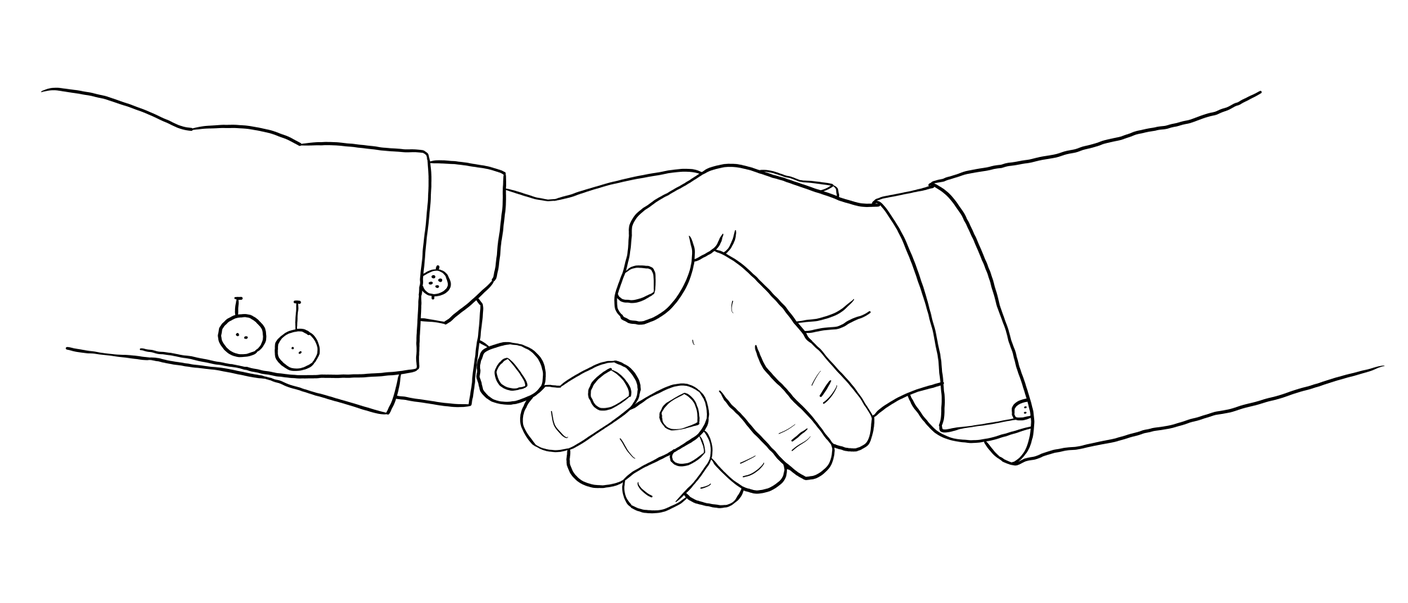
As a company, we can only initiate changes selectively in our supply chains and our cultivation regions through our programs. Therefore, we seek allies and advocate for political and cross-sectoral discourse. We also support cross-sector programs and initiatives. Sustainable development on a global level requires the collective action of many actors along the value chains and beyond. We want to make a significant contribution to this. We document our willingness to assume responsibility in ambitious voluntary commitments. We participate in initiatives that support us on our path and cooperate with partners from business, politics, science, and civil society on concrete projects. It is important to us not to start alone, but to develop the programs together with partners and scale them up in the future.
Overview of our partners, memberships and voluntary commitments:
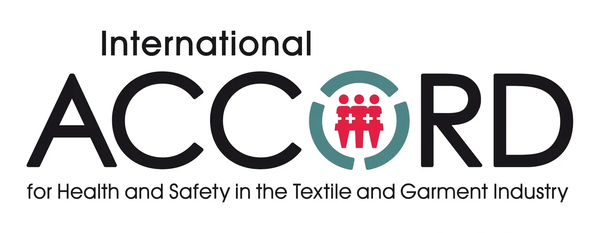
The Accord is an association of over 160 brand companies and buying houses in the garment industry, the global trade union federations IndustriALL and UNI Global Union as well as international non-governmental organisations. The aim is to make all member supplier factories in Bangladesh and other countries in the future safe workplaces based on high standards, regular inspections and the empowerment of workers.
Since 2021, the International Accord has been the successor to the Accord on Fire and Building Safety in Bangladesh from 2012. It includes modified structures as well as additional goals and voluntary commitments.
Year of joining: 2012/2021
Voluntary commitment
Member (founding member)

The ACT (Action, Collaboration, Transformation) initiative focuses on living wages in the garment industry, based on trade union rights and industry-wide collective bargaining in priority countries, as well as better purchasing practices and long-term voluntary commitments by the 22 member companies in collaboration with IndustriALL Global Union.
Year of joining: 2016
Voluntary commitment
Member (founding member)
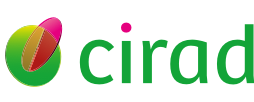
The Agricultural Research Centre for International Development (CIRAD) is a French agricultural research and international cooperation organization working for the sustainable development of tropical and Mediterranean regions. CIRAD's main task is to contribute to rural development in tropical and subtropical countries through research activities, experimentation, training, and the dissemination of scientific and technical information. It works with more than 100 countries in Africa, Asia, the Pacific, Latin America and Europe. Its operations are conducted at its own centers and those belonging to national agricultural research systems in its partner countries. CIRAD makes its scientific and institutional expertise available to fuel public policy in those countries and the global debate on the main issues surrounding agriculture.
Year of joining: 2024
Partner
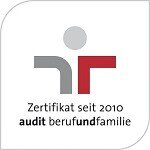
The initiative of the non-profit Hertie Foundation promotes family-friendly human resources policies in companies.
Year of joining: 2010/2013/2016
Certified
Beneficio de Café Montecristo SA (Becamo S.A.) was founded in 1983 by Emilio R. Medina and has become one of the leading coffee exporters in Honduras over the years through collaboration with over 4,000 local suppliers. Since 1989, Becamo has been a member of the Neumann Kaffee Gruppe (NKG). Becamo's core business is the purchase, processing, and marketing of coffee that meets the quality requirements of both national and international markets.
Sustainability as a business driver: Through the application of modern and innovative technologies and a commitment to ethical and ecological standards, Becamo contributes to the sustainable development of the Honduran coffee community. In 2023, Becamo received the award for the most sustainable company in Honduras for the ninth consecutive time.
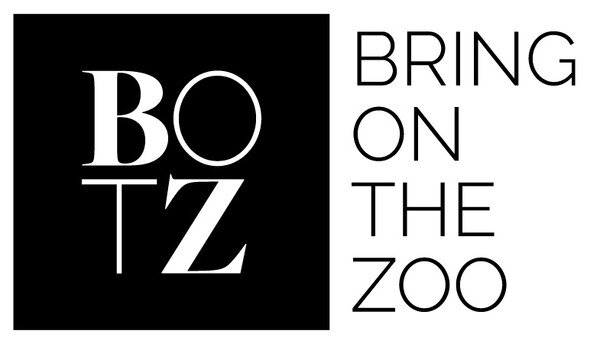
Bring on the Zoo is an innovative network company specialising in strategy building and change management. This is how they describe themselves: ‘We use applied creativity and expertise in group dynamics to ensure high impact innovation. We are skilled facilitators who develop concepts & programmes together with our clients to ensure our solutions can work in real-world situations. We focus on serious challenges and demonstrate high-impact results. We love complexity and are known for simple after complex. Making complex processes understandable for all, without oversimplification. Our ultimate goal is always to make ourself unnecessary in the end. For our clients to not depend on our services a second longer than necessary. We offer a lifetime guarantee, but we promise not to stay for that long!’
BOTZ is owned and operated by Lily Martens and Helen Kuyper. For each project we select partners from our international network to join us, offering our clients the specific expertise needed for each project. This is what the Zoo stands for.
Year of joining: 2024
Partner

Under the acronym B.A.U.M., the Bundesdeutscher Arbeitskreis für Umweltbewusstes Management (German Environmental Management Association) has successfully combined economic, environmental and social issues – in other words, the principles of sustainability – in a pioneering approach since 1984. Today, B.A.U.M. has well over 500 members and is a strong network of companies for sustainable business. In addition to many well-known companies, supporting members also include associations and institutions.
Year of joining: 2008
Member
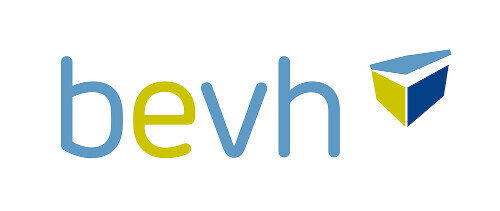
The industry association of interactive retailers (online and mail-order retailers) represents the interests of its members to legislators and political and economic institutions. It also provides information on current developments and trends and facilitates mutual sharing of experiences.
Year of joining: 1971
Member
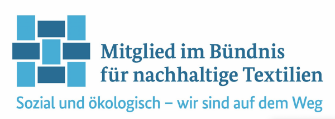
The Partnership for Sustainable Textiles is a multi-stakeholder partnership in which companies and trade and industry associations from the German textile sector work together with the German government, non-governmental organisations, standards organisations, trade unions and the scientific community to improve and implement social and environmental standards at all levels along the textile supply chains.
Year of joining: 2015
Voluntary commitment
Member (founding member)
Caffex is a Honduran exporter that sells high-quality green coffee from producers in Honduras to 21 countries. Transparent and responsible cooperation within the supply chain is at the centre of the company's work. Caffex supports producer communities in improving their production methods, processing and delivery. The result has positive social and economic effects on the farmers as well as on the quality of the coffee.
Coordinadora Latinoamericana y del Caribe de Pequenos Productores y Trabajadores de Comercio Justo (CLAC)
The CLAC producer network represents all Fairtrade-certified producer organisations in Latin America and the Caribbean - around 1,000 member organisations in 24 countries across the continent. CLAC's mission is to represent the interests of its members and their communities, to strengthen and promote them and to advocate for them on social, political and economic issues.

The Clean Cargo Working Group (CCWG) is a business-to-business leadership initiative involving major brands, cargo carriers, and freight forwarders dedicated to reducing the environmental impacts of global goods transportation and promoting responsible shipping. Today, CCWG tools represent the industry standard for measuring and reporting ocean carriers’ environmental performance on carbon dioxide emissions.
Year of joining: 2012
Member
Coffee Care is a non-profit organization that was founded in 2004 by coffee suppliers to make the work of coffee producers and farmers in Guatemala fair. The NGO focuses on the three main growing regions of Guatemala - Oriente, Atitlán, and Huehuetenango. Coffee Care's goal is to implement projects and programs that actually change and improve the working conditions and lives of the farmers and their communities, thus also positively contributing to the national coffee industry.

The initiative for coffee&climate (c&c) supports smallholder coffee farming families and their communities to adapt to the impacts of climate change by developing and disseminating tools for climate-smart practices. c&c is a pre-competitive initiative supported by global coffee companies, public donor organizations, smallholder communities, and research organizations. Together, they identify, evaluate, and share best practices for climate adaptation and mitigation through a collaborative network. Established in 2010, c&c has worked in seven regions worldwide and has trained more than 139,000 coffee farming households on climate-smart techniques.
Year of joining: 2010
Member
Tchibo is a founding member and is represented on the Steering Committee.
The Fundación COHONDUCAFÉ is a non-profit, non-discriminatory organization whose goal is to improve the living conditions of Honduran coffee farmers and their families. Founded by the Compañía Hondureña de Café (COHONDUCAFÉ) in 2013, the Foundation develops social development projects and initiatives in sustainable coffee production, environmental protection, women empowerment, education, and health. It provides training and resources to increase coffee farm productivity in a sustainable manner. Also, it supports development projects that aim to enhance the quality of life of coffee communities in rural Honduras.
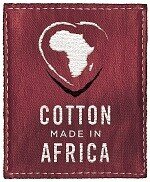
The Aid by Trade Foundation is a foundation that, together with various partners from the worlds of business, politics, science and civil society, helps to fight poverty and protect the environment in developing countries, especially in Africa. The CmiA initiative set up by the foundation aims to promote environmentally and socially responsible yet economically viable cotton-growing in Africa – and thus to improve the living conditions of small-scale farmers and their families.
Year of joining: 2007
Partner
Tchibo is a partner and member of the initiative’s advisory board. We support CmiA as a buyer of CmiA cotton and as a partner on educational projects.
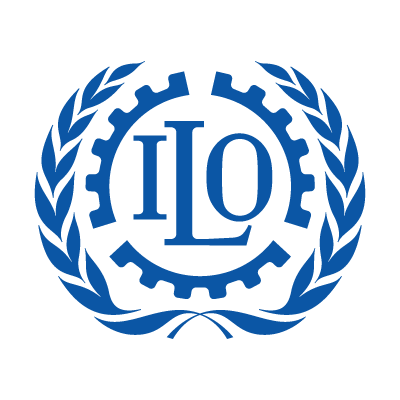
The International Labor Organization (ILO), the International Organization of Employers (IOE) and the International Trade Union Confederation (ITUC) are promoting action across the global garment industry to help manufacturers survive this economic disruption caused by the COVID-19 pandemic and protect the income, health and employment of garment workers. The Call to Action also calls for the development of sustainable social protection systems for a more just and resilient garment industry.
Year of joining: 2020
Voluntary commitment

The GIZ implements international cooperation projects and programmes for sustainable development for various federal ministries, international organisations and private clients worldwide and is active in international education.
Year of joining: 2008
Partner
Cooperation in the development and implementation of qualification programmes, such as Advanced Chemical Management Training (ACMT).
3-year project (2022 – 2025) to support organic cotton in India.

German Coffee Association
The German Coffee Association (Deutscher Kaffeeverband e.V.) is the umbrella organisation representing the interests of the coffee industry. It provides an opportunity for networking and dialogue between experts from the German coffee industry.
Year of joining: 1951
Member
Disrupt Development is a change agency catalyzing a movement of Disruptors to reimagine global development systems and make them more equitable and sustainable. We challenge outdated paradigms and co-create bold, future-proof alternatives that put people and the planet first.
We work with leaders, nonprofits, social enterprises, corporates, public institutions, and multilateral organizations on complex challenges. As trusted advisors and thought leaders, we support those who dare to think differently, break conventions, and seek innovative solutions where none seem to exist. Together, we develop customized strategies, co-create transformative learning experiences, launch groundbreaking initiatives, and bring the boldest ideas to life.
What makes us unique? We are steward-owned, ensuring that purpose always comes before profit. We operate through self-organization and holacracy, empowering a global network of change-makers, our ‘Disruptors’, to lead where traditional structures fail.
At Disrupt Development, we disrupt the status-quo and design new futures!
Dss+ is an international consulting firm headquartered in Switzerland. Dss+ specializes in safety and operational management, with the aim of saving lives and shaping a sustainable future for future generations. The focus is on helping companies build organizational and human competencies, control risks, optimize operational processes, achieve sustainability goals, and act responsibly overall.
Enveritas was founded in 2016 and is a non-profit organization based in the USA. Its goal is to bring more transparency to the coffee sector in order to better protect people and the environment on site. To achieve this, Enveritas uses satellite-based analyses and machine learning in combination with more traditional farm surveys. This approach allows sustainability information to be collected for large parts of the global growing regions. The founders of Enveritas have decades of experience in supporting small-scale coffee farmers in Latin America and Africa. Through their work, they have recognized the potential of technology in solving local problems.
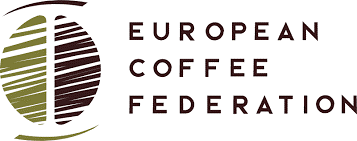
The European Coffee Federation is the unified voice of European coffee retailers and the European coffee industry. It promotes the development of an environment in which the industry can meet the needs of consumers and society whilst competing for the resilience and long-term sustainability of the coffee supply chain.
Tchibo is represented by virtue of its membership of the German Coffee Association and chairs the Sustainability Committee.
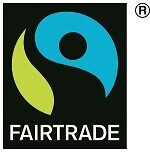
Fairtrade is an independent initiative to promote fair trade, advocating for more justice in global trade. Fairtrade enters into licensing agreements with trade partners who offer products traded according to Fairtrade standards - this includes prescribed minimum prices and premiums for community projects on site. This commitment serves to empower all producers worldwide - especially in the Global South - to live a safe and good life, to realize their potential, and to decide their own future in the long term. To this end, Fairtrade connects producers and consumers and supports people in the growing countries so that they can overcome poverty on their own, strengthen their position, and determine their own lives.
Fairtrade standards ensure that minimum prices are paid and enable coffee farmers to sustainably improve their living and working conditions. The independent Fairtrade label gives consumers the assurance that the products which bear it meet the international standards for fair trade.
Year of joining: 2008
Licence holder
Tchibo is a member of Fairtrade's Coffee Product Advisory Council.
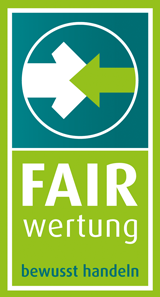
For more than 20 years, the umbrella organisation FairWertung has been campaigning for responsible handling of old clothes and greater transparency in collection and recycling. To this end, FairWertung developed and implemented standards for the collection of textiles at an early stage.
Year of joining: 2017
Co-operation partner
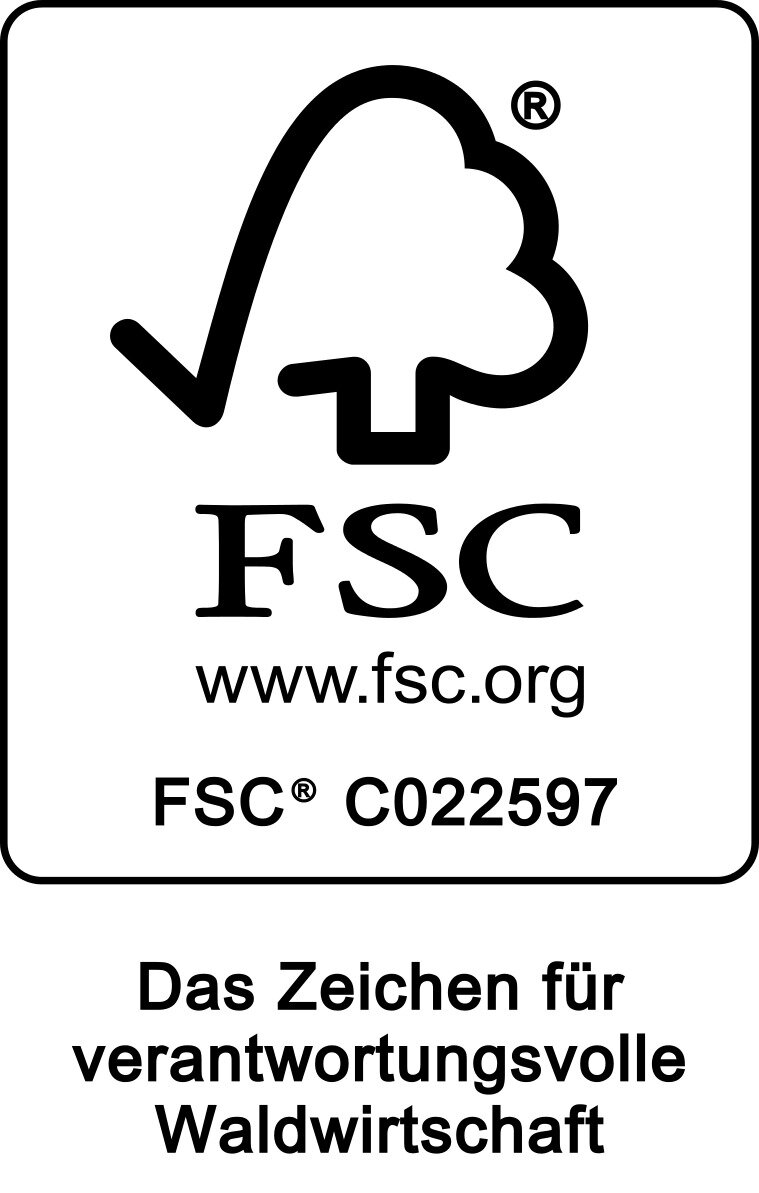
The non-profit organisation awards a recognised label for wood and paper products that are sourced from responsibly managed forests. Independent institutes check every company participating in the value chain for compliance with the strict FSC® standards.
Year of joining: 2010
Member
Tchibo is a member of both FSC® Germany and of FSC® International.
By selling FSC®-certified products, Tchibo is boosting demand for wood and paper from forests that are responsibly managed according to strict guidelines.
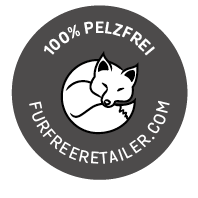
The Fur Free Retailer Program is an international initiative that aims to inform consumers about retailers’ fur policies. The programme aims to raise awareness about ethical shopping. A list provides information about retailers who have pledged not to include fur products in their product ranges.
Year of joining: 2013
Voluntary commitment
Member
Tchibo has not sold any fur products since 2006 and has pledged not to include any fur products in its ranges in the future by signing the Fur Free Policy.
Global Coffee Platform (GCP) brings together coffee producers, roasters, traders, government organizations, and NGOs to pool resources and respond collectively to local issues in coffee cultivation in order to make a global change. This is because the shared vision is to create a more sustainable and profitable coffee sector for future generations around the world.
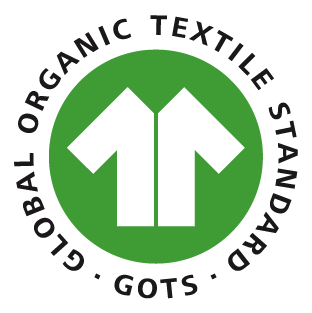
The Global Organic Textile Standard guarantees the sustainable production of textiles, from the extraction of organically produced, natural raw materials to environmentally and socially responsible manufacturing right through to transparent labelling.
Year of joining: 2014
Certified
Tchibo has been awarded GOTS certification and can therefore offer GOTS-certified products in Germany.

German Retail Association (Handelsverband Deutschland – HDE)
The HDE is the umbrella organisation of the German retail trade. It represents the concerns and interests of the entire retail trade across all sectors, locations and company sizes.
Year of joining: 1974
Member
Tchibo is an active member of the legal, environment, energy and Non Food committees.

Hanns R. Neumann Stiftung (HRNS) is an independent foundation working with smallholder families in coffee regions and youth in Germany. HRNS is implementing projects in seven countries worldwide focusing on the livelihood situation of smallholder families with a holistic approach in the areas of youth, climate change, family business, organizational development and gender. Since its foundation in 2005, HRNS reached more than 330.000 smallholder families in 18 countries. In Germany, HRNS is supporting more than 20 organizations focusing on the integration of migrated youth.
Ibero Kenya Ltd., a subsidiary of the Neumann Kaffee Group, was founded in 1964 and is one of the country's leading export companies, renowned for its expertise and quality in the coffee sector. The company has numerous sustainability programs, which are implemented through Tropical Farm Management and aim to improve the living conditions of farmers. The company has many years of experience in providing training, demonstration farms, agricultural inputs, loans, and logistical support in the coffee sector.
IHCAFE is an institution focused on promoting the socio-economic profitability of coffee cultivation in Honduras. IHCAFE offers training and support programs for university graduates, agronomists, and farmers to increase the country's competitiveness, make the use of more environmentally friendly and modern technologies the status quo, and establish diversification of fields as an alternative source of income.
This is achieved by IHCAFE focusing on management and business development, setting standards for internal and external production and marketing of coffee, and thus generating a more sustainable and competitive coffee farming economy on the international market. This enables farmer families to develop in many ways.
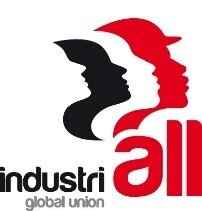
The international trade union federation IndustriALL Global Union represents 50 million workers in manufacturing industries, including the garment industry.
Year of joining: 2016
Partner
Tchibo hat eine Globale Tchibo has signed a Global Framework Agreement with IndustriALL Global Union to strengthen the rights of trade unions in our Non Food supply chains.
The Inga Foundation was founded by, among others, Mike Hands. The main goal of the foundation is to protect the rainforest, empower people in Honduras to help themselves, and secure their food supply. The projects of the Inga Foundation are based on the results of the founder's long-term studies on subsistence farming with slash-and-burn for the University of Cambridge. Based on this, the Inga model was developed - a system that supports small-scale farmers to escape poverty and stop the practice of slash-and-burn.
Farmers are trained in high-efficiency cultivation on relatively small spaces, so that one to two hectares are sufficient to secure the food for the whole family as well as firewood for cooking and heating. In this way, an average of six hectares of land per family is freed up, which the farmers can then use for other purposes to generate additional income.

Pro Recycled Paper Initiative (IPR)
This initiative, launched by companies from various sectors, aims to further increase acceptance of the use of recycled paper with the Blue Angel eco-label and to set a good example.
Year of joining: 2008
Member
Inoi Farmers' Cooperative Society Ltd. is a Kenyan farmers' cooperative. Inoi was founded in 1954 and is located in the Mount Kenya region, more precisely in Kirinyaga County. With over 5,000 active members, the cooperative coordinates the production and marketing of coffee and operates a network of mills for wet processing of coffee cherries.
Das Instituto BioSistêmico (IBS) was founded in 2006. Since then, the organization has been pursuing the goal of promoting agricultural development in Brazil through innovative measures and the application of technological processes. So far, IBS has supported 21 states in over 220 projects. The focus is on collectively advancing social and ecological sustainability in the agricultural sector. For us, the organization is the ideal partner for the implementation and coordination of Paisagens Sustentáveis.
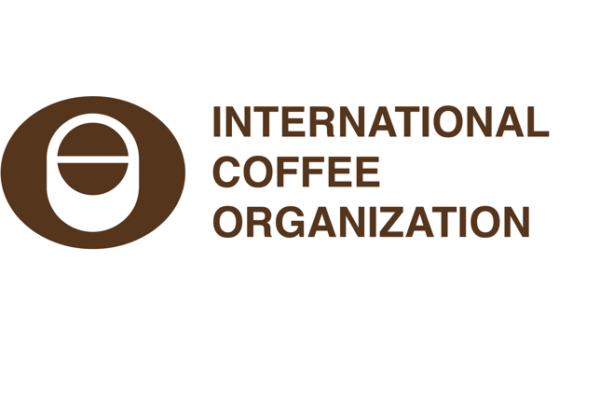
The International Coffee Organization is the most important intergovernmental organisation for coffee. It brings together exporting and importing governments to tackle the challenges of the global coffee sector through international co-operation.
Die International Coffee Organization (ICO) was founded in 1963 and is the only intergovernmental organization for the international coffee industry that brings together exporting and importing governments. Currently, the ICO covers 93 percent of global coffee production and 63 percent of global consumption, providing a basis for dialogue between governments, the private coffee sector, development partners, civil society, and other stakeholders. As of November 7, 2022, the ICO has 49 members: 42 exporting states and 7 importing members for a total of 75 countries.
The main goal of the ICO is to promote and coordinate measures to stabilize the coffee market and support the sustainable development of the coffee industry. To this end, the ICO collects data and produces independent, publicly accessible statistics and analyses on the production, consumption, trade, and prices of coffee. Another concern of the ICO is to promote fairness and sustainability in coffee production in order to improve the living conditions of coffee farmers and workers, reduce environmental impacts, and optimize the quality and diversity of coffee.
The ICO consists of member countries that include both coffee producers and coffee consumers. The members meet regularly to discuss policy issues, develop joint projects, and make decisions related to coffee trade and the coffee industry.
Tchibo is a member of the Coffee Public Private Task Force, whose task is to reach a common consensus on priority topics and measures for discussion.
Year of joining: 2019
Supporters of the London Declaration

International Coffee Partners (ICP) is a pre-competitive partnership of seven leading family-owned European coffee companies: Delta Cafés of Portugal, Franck of Croatia, Joh. Johannson Kaffe of Norway, Lavazza of Italy, Löfbergs of Sweden, Neumann Kaffee Gruppe of Germany, and Tchibo of Germany. ICP supports smallholder coffee farmers to improve their livelihoods by becoming more competitive, based on sustainable practices. In doing so, ICP aims at contributing to a fair and sustainable coffee sector in all coffee-producing countries. Since its founding in 2001, ICP has reached more than 122,000 smallholder farming families in 13 countries.
Year of joining: 2001
Member (founding member)
Tchibo is a member of the Steering Committee.

The non-profit organisation ISIC was founded in 1990 with the aim of scientifically researching the topic of coffee consumption and health and disseminating its findings.
Year of joining: 1998
Member
The Max and Ingeburg Herz Foundation funds various projects in Ethiopia and Uganda. All with the goal of improving the living conditions and income of smallholder coffee farmers in the long term. This is achieved with the help of the HereWeGrow organization and local partners. True to the motto "Go, talk, do," the foundation continuously works on local challenges. The projects help farmers in Ethiopia and Uganda with training, direct financial support, and investments in necessary infrastructure. To ensure structural change in the sector, the organization is active at the national and international levels.
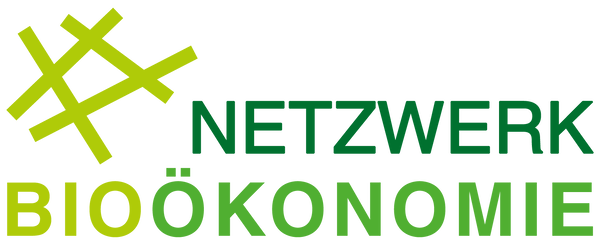
German Environmental Aid’s Bioeconomy Network
The Bioeconomy Network of German Environmental Aid facilitates expert discussions between policymakers, government, civil society and business leaders on the latest topics in bioeconomy.
Year of joining: 2018
Member
The core business of the Neumann Kaffee Gruppe (NKG) is green coffee. From coffee cultivation and further processing in mills, through export and international shipping, to import, storage, and financing - the product coffee is at the center of the globally operating service group. The NKG, headquartered in Hamburg, operates with more than 50 companies in 26 countries and employs over 3,000 people.
One of the most important corporate goals is the sustainable design of the entire coffee supply chain. Globally relevant issues such as climate change, the profitability of cultivation for future generations, diversity, and transparency therefore play a major role in establishing solutions for a responsible coffee industry.
The Tchibo GmbH Germany and various export and import companies of the Neumann Kaffee Gruppe have been operating an extensive green coffee business together for more than 5 decades. The relationship extends to almost all coffee origins from which Tchibo sources its coffee. The NKG and its group companies are not only professional and reliable green coffee suppliers or green coffee service providers. They are also involved in many projects in coffee regions that promote sustainable supply chains and local farmer groups.
NKG Vietnam, NKG's export company based there, is also the local implementation partner for our "Climate Resilient Coffee Farming" project and works directly with coffee producers, which fits in perfectly with our goals for a more sustainable world.
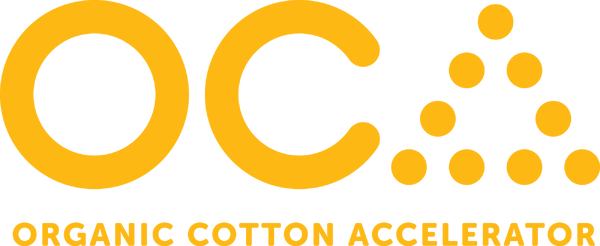
The multi-stakeholder organisation OCA works in cross-sector projects to promote structural change for the organic cotton sector in order to increase demand for organic cotton and organic cotton products as well as to support the farmers growing organic cotton. This includes fair purchasing practices, improved access to high-quality organic cotton seeds for farmers and the integrity of processes at every stage in the supply chain.
Year of joining: 2016
Partner company
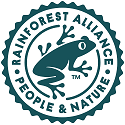
The Rainforest Alliance is an internationally renowned, independent environmental protection organisation that works to protect vulnerable ecosystems by promoting sustainable land management. The Rainforest Alliance label stands for environmentally responsible farming methods and socially responsible business practices. This includes conserving resources and providing training assistance to coffee farmers.
The Rainforest Alliance is an international non-profit organization that works at the intersection of trade, land, and forestry to create a world where people and nature can grow together. It advocates for the protection of forests and biodiversity, acts for the climate, and promotes the improvement of livelihoods for rural populations.
Year of joining: 2006
Licence holder
Partner
3-year project (2025 - 2028) "Brewing the future - Coffee to stay" to support smallholder farmers in Kenya
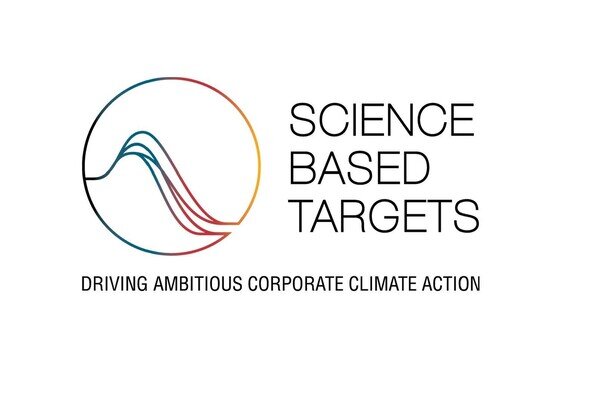
The Science Based Target Initiative drives ambitious climate initiatives in the private sector by enabling companies to set science-based emission reduction targets.
Year of joining: 2020
Voluntary commitment
Tchibo has a climate target reviewed in accordance with the "Business Ambition for 1.5°C"
Science Based Targets Network
By taking part in the SBTN Corporate Engagement Programme, we are helping to develop and test user-friendly methods, tools and guides for setting Science-Based Targets for Nature.
Year of joining: 2021
Member

The ShortSeaShipping Inland Waterway Promotion Centre (SPC) is a public-private partnership (PPP) between the Federal Ministry of Transport and Digital Infrastructure, numerous state ministries of German federal states and shipping companies. The SPC advises logistics companies and carries out education and awareness-raising work on the advantages of intermodal networking of transport modes.
Year of joining: 2015
Member
SNV is a development organization driven by the Sustainable Development Goals (SDGs) that promotes inclusive market-based approaches based on local know-how to systematically combat poverty in rural areas. SNV has extensive experience in implementing large-scale agricultural programs in collaboration with the Vietnamese government, the private sector, civil society, and other relevant stakeholders involved in training farmers in climate-friendly and sustainable production practices. These trainings create opportunities for the base of the pyramid, i.e., the poor rural population and often vulnerable farmers of ethnic minorities, to improve their income and economic security. SNV has a proven track record of collaborating with Vietnamese government institutions and supports Tchibo in building partnerships and subcontracting government agencies to independently implement certain program activities.
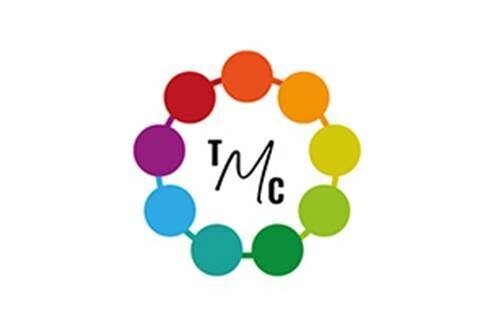
The Microfibre Consortium (TMC) facilitates the development of applied solutions for the textile industry with the aim of minimising the dispersal of fibres into the natural environment.
Year of joining: 2020
Member
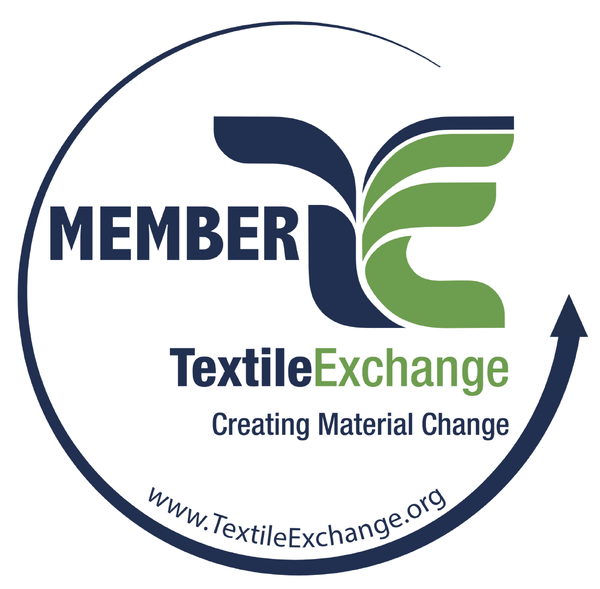
Textile Exchange is a global non-profit organisation that works closely with its members to drive the industry's transformation towards more sustainable fibres, integrity, standards and responsible supply networks.
Year of joining: 2008
Member

Throughout 2018, fashion industry stakeholders, under the auspices of the UN Climate Change Secretariat, worked to identify ways in which the broader textile, apparel and fashion industry can move towards a comprehensive commitment to tackle climate change. They created the Fashion Industry Charter for Climate Action, which includes a vision to achieve net zero emissions by 2050.
Year of joining: 2020
Member
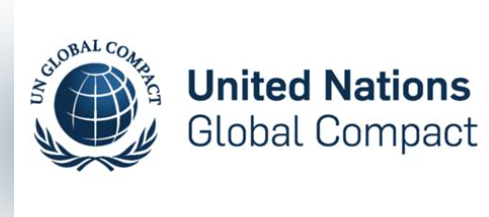
Under the Global Compact, companies around the world work together under the umbrella of the United Nations to create a sustainable and integrated global economy that delivers lasting benefits to all people, communities and markets. The UNGC has formulated ten universal principles on human rights, labour standards, environmental protection and anti-corruption, which are firmly established in business practices worldwide and thus also support the goals of the United Nations.
Year of joining: 2009
Voluntary commitment
Participant
Participant
Tchibo is committed to the ten principles of the UNGC and has published a progress report since joining. Since 2012, the annual progress report has been prepared in accordance with the more demanding ‘GC Advanced Level’.
Tchibo is part of the German Global Compact Network.

Western Highlands Agriculture and Forestry Science Institute is responsible for academic research and technology transfer in the fields of agriculture, forestry, livestock, biotechnology, protection of ecological environment for the development of agriculture and forestry in Central Highlands Vietnam.
Some examples:
• Carry out research on breeding selection, propagation of crops and livestock; plant protection; agronomy, agriculture & forestry systems; ecological environment protection processing and storage of agriculture forestry products and foodstuffs for cattle to support for the agriculture forestry development of Central Highlands;
• Study on the uses and protection of land and water resources and small-scale hydroelectricity.
• Assess and test fertilizers, fungicides and insecticides, new crop varieties; soil and water analysis; build up solutions for integrated pest and diseases management such as IPM. Produce, commercialize products of research as well as other products for agricultural productions.
• Participate in training, consulting and transfer of science and technical advances to organizations, individuals, and farmers.
Year of joining: 2024
Partner

World Coffee Research is a non-profit research and development organisation. Its mission is to promote, protect and improve the supply of high-quality coffee whilst also improving the living conditions of the families who produce it.
The World Coffee Research (WCR) is an internationally active organization that was founded in 2012 and specializes in research and development in the field of coffee. Its members include over 170+ companies from 29 countries worldwide, including Starbucks, Dunkin', the J.M. Smucker Company, Keurig Dr. Pepper, illycaffè, and JDE/Peets.
The main goal is to improve the sustainability and resilience of coffee cultivation, increase the quality and productivity of coffee plants, and create a sustainable livelihood for people in the coffee sector that meets the growing demand while protecting natural resources. To this end, WCR invests in agricultural innovations to preserve origin diversity and strengthen producers in the eleven project countries Ethiopia, Guatemala, Honduras, India, Indonesia, Kenya, Mexico, Nicaragua, Papua New Guinea, Peru, and Uganda - these countries cover half of the 12.5 million coffee farmer families worldwide and produce about a third of all global coffee.
Advancing with science: Among other things, WCR advocates for the professionalization of nurseries and seed systems, conducts variety trials, and modernizes plant breeding. This is intended to improve the quality of coffee and give farmers access to better varieties so that they can become more resilient and profitable in the face of threats such as climate change. For the respective research, WCR works with leading institutions in the producer countries and around the world.
Year of joining: 2021
Member

The Zero Discharge of Hazardous Chemicals initiative works with global brands, chemical suppliers, manufacturers and other organisations to reduce the impact of chemicals used in industry on the planet.
Year of joining: 2018
Member